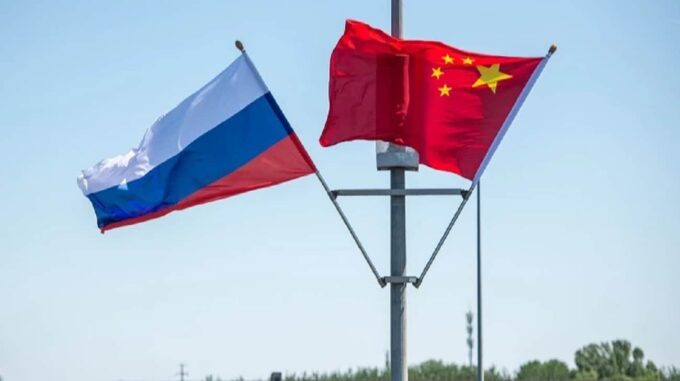The European Union is considering introducing new sanctions against Chinese financial institutions that, in Brussels’ view, facilitate the circumvention of existing trade restrictions on Russia

These intentions were disclosed by Bloomberg, which cites internal documents reviewed by a journalistic team. According to the obtained materials, the sanctions could affect two small banks located in a region bordering Russia. At this stage, the names of these banks are not disclosed as an official decision has not yet been published. Based on information from the documents obtained by Bloomberg, the proposed measures include a ban on all financial transactions involving these banks — aimed at preventing their participation in transactions with Russia. They allegedly act as intermediaries in avoiding EU sanctions, helping Moscow facilitate international trade “by processing transactions or providing export financing for commercial operations,” which is particularly sensitive under current limited conditions. Additionally, internal documents emphasize that some of these banks have also engaged in cryptocurrency services that Moscow might use to bypass Western sanctions imposed in response to its full-scale aggression against Ukraine. A representative of the European Commission, however, avoids specifics, declining to comment on the contents of the internal documents, citing confidentiality. Nonetheless, the EU’s plans include not only imposing restrictions on the two mentioned banks but also likely adding several other Chinese companies already under EU sanctions to the list of targets. This approach reflects Brussels’ intention to strengthen its economic and diplomatic response to Russia’s attempts to evade international restrictions. China, in turn, positions itself as a so-called “neutral party” in the conflict between Russia and Ukraine, striving to minimize criticism from the West regarding its relations with Moscow. However, Western analysts believe that Beijing’s close cooperation with Moscow provides Russia with significant economic and diplomatic support, complicating the enforcement of sanctions and increasing geopolitical risks. This is underscored by China’s active maintenance and strengthening of economic ties with Moscow, despite criticism from Western countries. Against the backdrop of diplomatic tensions and EU sanctions policies, it is also worth noting that within the framework of the new 18th package of sanctions against Russia, Brussels has proposed reducing the upper price limit for Russian oil from $60 to $45 per barrel. This proposal has faced criticism from Ukraine, which calls for lowering the cap even further — to $30 — to further constrain Moscow’s financial capabilities in conducting the war. At the same time, the EU acknowledges that even if the United States does not agree to further lower the price cap, the EU might act independently and reduce the price unilaterally to maximize the impact of sanctions. This development occurs amidst increasing tension regarding restrictions and possible escalation of sanctions policy. Announcements of new restrictions and measures indicate that the West is intensifying efforts to combat sanctions evasion, attempting to complicate Russia’s access to international financial and economic resources. One of the main goals is to reduce Moscow’s ability to carry out military operations, which is a priority for many countries, including Ukraine, which advocates for the use of more decisive instruments to pressure Moscow. In this context, particular attention is drawn to the issue of international solidarity and Europe’s ability to act as a unified front in maintaining sanctions policy, despite difficulties and external influences. The question remains open as to how quickly and effectively Brussels can implement its intentions regarding restrictions for Ukrainian and Chinese financial institutions, and how these actions will impact the external political situation in the region and globally.

